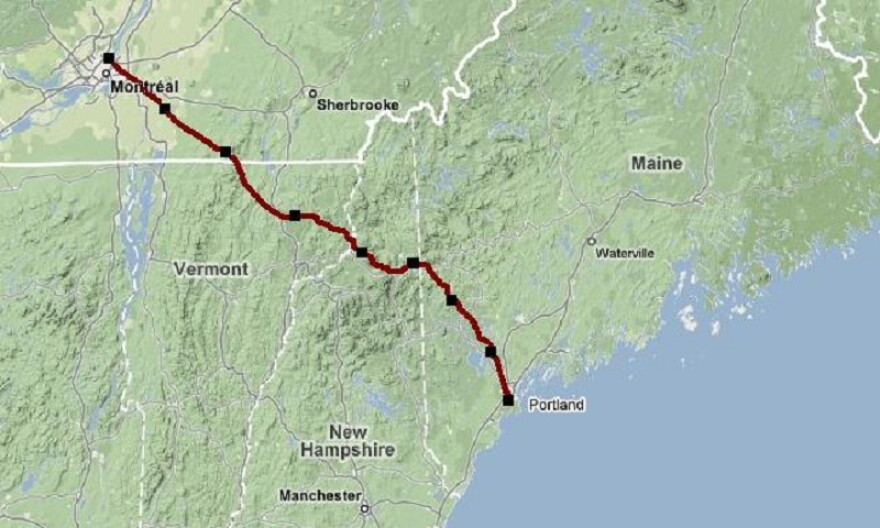Canadian regulators have announced that they will allow the reversal of a pipeline that some worry could bring tar sands oil from Alberta to Montreal.
The approval of the controversial application by Enbridge, a Canadian pipeline company, to reverse the flow of its pipeline currently carrying crude oil was announced Thursday afternoon on the website of the National Energy Board.
But Enbridge insists that it will not use the NEB decision to transport any oil, including tar sands, beyond the Canadian border. Enbridge spokesman Graham White says Canadian refineries will consume all the oil the pipeline can carry.
“And this has not changed, we have no plans, no proposals to move that crude by pipe further east than Montreal and that is what this plan is designed to do and that is what the NEB is making their decision on this afternoon,” White said.
But the Enbridge pipeline does connect to another pipeline from Montreal to South Portland, Maine.
Portland Pipeline Corporation says there is no plan to reverse its flow and that the Canadian ruling does not change that position. But CEO Larry Wilson told Vermont lawmakers last year that the company does want to “revitalize our pipeline company and the pipeline system.”
“And that includes the possibility of reversing our pipeline and it includes the possibility of moving oil from the western Canadian oil sands,” Wilson said.
That’s what’s got environmentalists worried, especially now that Canada seems to have opened the door another crack. Jim Murphy is Senior Counsel for the National Wildlife Federation. He says tar sands oil contributes to climate change, and when it spills, it’s environmentally harmful and very hard to clean up.
“We’re disappointed that the Canadian Board did not do the right thing on this but we’re very confident that Vermonters and New Englanders are going to do everything they can to keep tar sands out of the region and I think ultimately that there isn’t going to be a tar sands pipeline in Vermont or New England,” Murphy said.
Vermont regulators say any pipeline reversal here would require Act 250 approval. Thirteen towns passed non-binding anti-tar sands resolutions this week. But in South Portland, Maine, a ballot question that would have banned the flow of tar sands was narrowly defeated last November.





